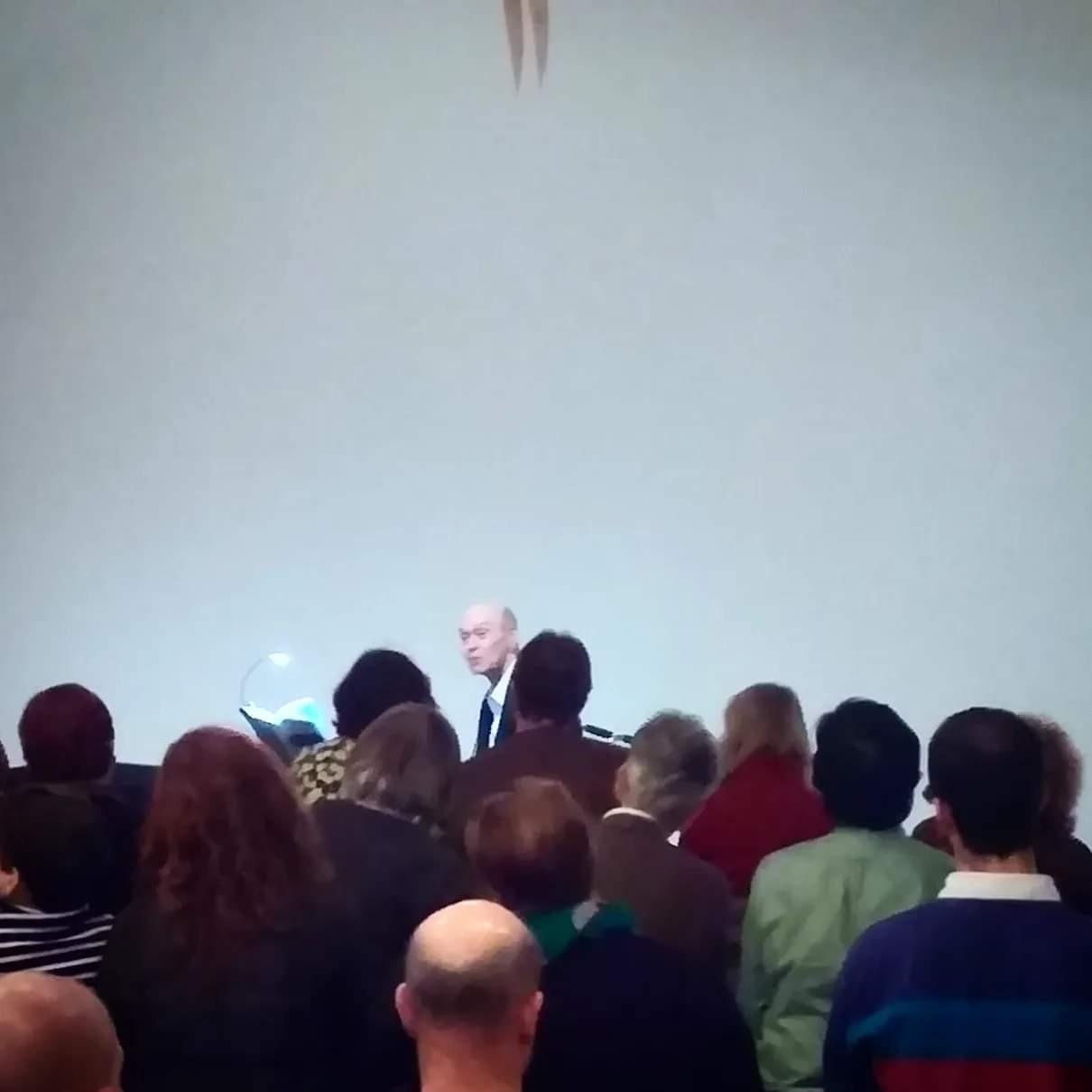It happened on October 3, 2015. The British writer Jonathan Raban, who, at age 80, died last Tuesday (January 17), and who spent the last 30 years of his life in Seattle, said something that made the packed house at Frye Museum laugh. I laughed. The person next to me laughed—same with the person next to them. We all thought Raban was, at best, joking when he predicted that the reality TV star Donald Trump would become the next president of the United States. No one in Seattle's bubble saw it as a remote possibility. But we learned our lesson a year later. And this is why I did not laugh when, this morning, I read The Hill's headline: "Don’t laugh: George Santos could become president."
...look upon George Santos with despair. You may be tempted to read this as a joke about George Santos (R-N.Y.) putting “president of the United States” on his resume. But I am not joking. I am worried that Santos — or another charlatan just like him — can become president of the United States one day.
"Don’t laugh: George Santos could become president" (@TheHillOpinion) https://t.co/KdW7iyebCx pic.twitter.com/Lc5EBvq9dL
— The Hill (@thehill) January 25, 2023
One thing you can always count on in our times, which began at the end of the 1970s, is the power of a new low in American politics. There was, to begin with, Ronald Reagan...
Then came Trump. Where do we go from there? Santos? Why not? Americans at the bottom of the right (the large base) ultimately want to be entertained. They confuse this need with the real thing, a real political feeling, like what we find in the Freedom Fighters of the second half of the 20th century. How else could Trumpers have taken January 6 seriously? They thought they felt something more than a thrilling Super Bowl. But it was nothing more than that. Politics in the mode of entertainment.
If Raban were here with us, I would have presented these thoughts to him during a visit to his Queen Anne house. He never lost track of the world around him. Even after surviving a stroke in 2011—the stroke that ultimately killed him a little more than a decade later—his voracious reading did not cease: newspapers, new novels, old books. And he never stopped making reading recommendations. For example, not long after Trump was elected, I found a copy of Anthony Trollope's The Way We Live Now on the round table next his kitchen and next to a view birds, bird feeders, and the trees of a falling Queen Anne and a rising Fremont. He thought the book explained the kind of presidency the US entered. This novel about a charlatan who, in the age the novel was written (1870s), becomes a Member of Parliament, was in my hands a few days later. I read it. The Trump preecho was indeed in the work.
When Raban wasn't reading, he was writing. In fact, his sortilege of the 2016 presidential election was a report of the Tea Party he wrote for New York Review in 2010. It described with that first-rate mastery of the English pen found in all of his books, the movement's first big convention—held in March of 2010 at Nashville's Opryland Hotel. He registered their passion. He took it seriously.
Raban:
I went to Nashville not as an accredited reporter but as a recently joined member of Tea Party Nation. (I had my own quarrels with big government, especially on the matter of mass surveillance, warrantless wiretapping, and the rest, and I counted on my libertarian streak to give me sufficient common ground with my fellow tea partiers.) When I presented my Washington State driver’s license at the registration desk, the volunteer said, “Thank you for coming all this way to help save our country,” then, looking at the license more closely, “Seattle—you got a lot of liberals there.” I accepted his condolences.
I will never know his thoughts on George Santos and the next future of America's democracy, which has been in decline for some time now. I will never again hear the voice of his informed thoughts or drink his red wine or eat the Indian-spiced food he prepared during my visits. He, like so many people I love, is now out of time. I will miss him deeply.
Celebrating Jonathan Raban takes place at Elliott Bay Book Company, 1521 10th Ave, Thurs, Jan 26, at 7 pm.
















